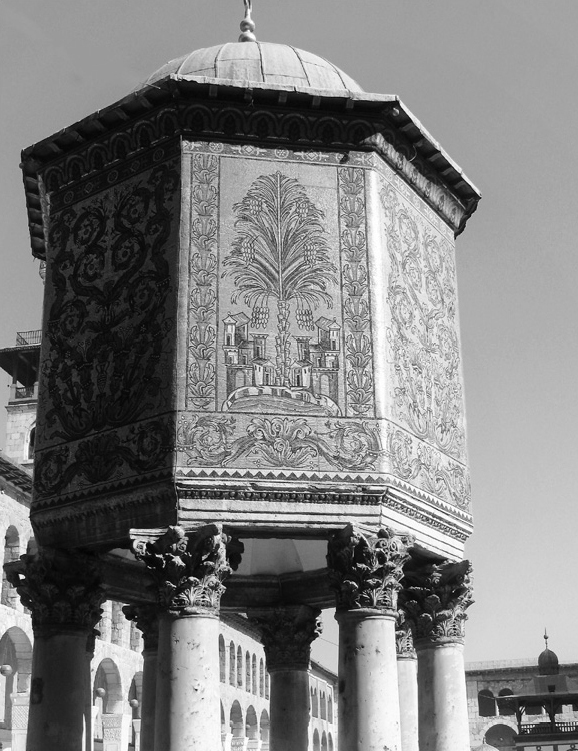Syria Dignity

Courtyard of the Umayyad Mosque, Damascus, Syria.
“We do not want your bread. We want dignity.” Words shouted in the southern city of Daraa, at a funeral for protesters killed by Syria’s secret police; funerals that would spark huge attendance, more protests, and then more funerals.
As revolution spread across Syria in the spring of 2011, one defining theme was a call for dignity: the dignity of work in a country where employment was hard to find and often precarious; the dignity of political freedom and democracy, in a nation that had been ruled by one family for thirty years; the dignity of living in a fair society, where wealth was not siphoned off by a corrupt system; and the dignity of living in a free society, without looking over your shoulder for the secret police at every turn.
In March, during the early weeks of the revolution, a “Friday of Dignity,” with widespread protests against the Assad regime, was one of the early flashpoints in the uprising. An estimated thirty-eight people were killed when the military opened fire on multiple groups of protesters. That November, a nationwide Dignity Strike was organized, a coordinated campaign of civil disobedience, prompting further crackdowns.
In the face of a murderous regime, knowing the deadly consequences of protest, Syrians still stood up to fight for their dignity. In the words of nonviolence activist Yahya Shurbaji, who became famous as the “man with the roses” who approached security forces with gifts of peace: “I would rather be killed than be a killer.”
The story of Shurbaji shows the shocking way in which the dignity of ordinary citizens was violated with impunity by the regime. He was arrested in September 2011, and his family campaigned for years for his release, only to be informed in 2018 that he had been killed in prison some five years earlier. One of the many bitter tragedies of the bloody civil war that emerged from the revolution is that those who protested in the name of dignity in 2011 had so much of theirs stripped away in the years that followed.
That tragedy is compounded still further when you pause to consider the country Syria had been before the civil war, and the way it was defined as a nation by dignity—the dignity of religious freedom and tolerance, of one of the world’s oldest and most important civilizations, and of the extraordinary constellation of cultures that could be seen and experienced on the streets of Syria’s cities. Anyone who thinks that New York or London represents a melting pot should have seen Damascus before the revolution, as I did on my honeymoon: a place where you could feel the living history of one of the world’s oldest cities through the courtyards and streets, smell the jasmine that it is named for, and taste the food that has been flavored by millennia of immigration, invasion, and traders passing through. In Damascus, the history of empires, of religions, and of trade intersect. It has the dignity of the oldest inhabited city in the world, one that has seen almost all the world’s major cultures and religions leave their mark.
Syria was a country of historic, cultural, and religious dignity—so much of which has been attacked and torn down by the horrors of its civil war. Hundreds of thousands have been killed, millions displaced from their homes and forced to flee the country, and cities turned into rubble.
Not a shred of dignity has been shown to the people of Syria by a dictatorship that has tortured, murdered, and used chemical weapons against them with impunity. But dignity is still what oppressed and displaced Syrians long for. In 2018, as the seven-year civil war appeared to be nearing its end, thoughts began to turn to whether, how, and when the millions who had been forced out could return. For many, the starting point to rebuilding their country, their culture, and their lives, is to regain some of the dignity that has been so brutally stolen. As one refugee interviewed by the BBC said: “We want a solution that will give us back our dignity—no more, no less.” For Syria, whose past was so defined by dignity, there can be no future without it.